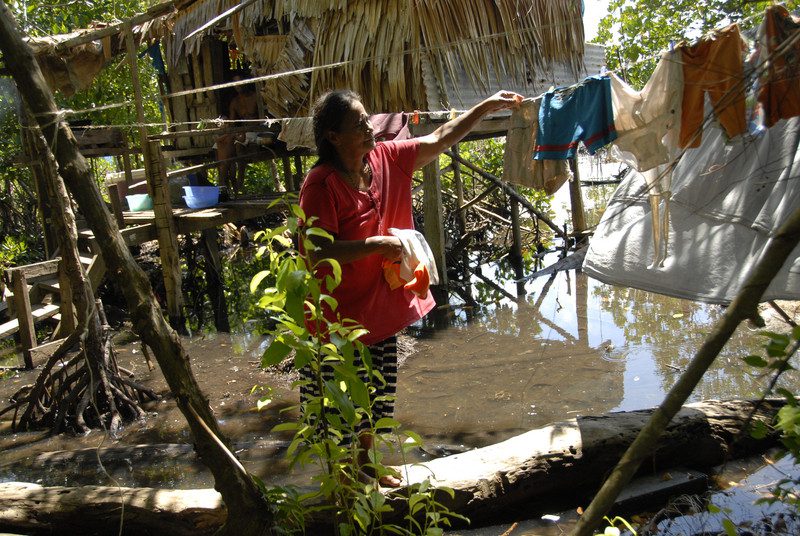What Oxfam is doing
Our climate change work focuses on five areas:
1. Understanding the impacts of climate change on communities
Climate change impacts are varied and localised – and the impacts are felt differently depending on where you live, the type of work you do or if you are a man or woman.
To help communities identify their own course of action we need to better understand how already complex social and natural systems are affected by climate change, and what options for action exist. We’re doing this by conducting research in partnership with communities – in Bangladesh we’re investigating how women are increasingly impacted by disasters, and in Timor Leste our community climate change research will help communities adapt and identify how the government might best support their efforts.
2. Providing emergency humanitarian support
Much of our work responding to natural disasters can be linked to climate related events, like our emergency work in Bangladesh and Sri Lanka. We’re also focused on ensuring vulnerable communities are better prepared for extreme weather events and can reduce the risks they pose. Deaths from floods in Bangladesh have dramatically dropped because of improved disaster management planning.
3. Helping poor communities adapt to climate change
Increases in temperature and altered rainfall patterns, changes to extreme storm events and the inundation of low-lying coastal areas – communities need to adapt to these impacts to survive and prosper. We’re helping find ways that women and men do this; in Mozambique we’re working with communities to grow drought-tolerant crops and in Timor Leste we’re supporting the development of local community adaptation plans.
4. Campaigning for strong global action on climate change
We believe we need a global solution to climate change because we’re all in this together. So we’re working with other organisations as part of the tck tck tck coalition to ensure that world leaders are working for a fair, ambitious and legally binding global climate change agreement that avoids dangerous climate change.
This means emission reduction targets in developed countries of at least 40% by 2020. It also means that rich developed countries, such as Australia, contribute their fair share to a United Nations fund to help developing countries cut their emissions and adapt to climate change
5. Helping women cope with climate change
Women in developing countries are particularly affected by climate change. They are usually the ones who grow the family’s food, fetch fuel and water, and raise the children. During periods of drought they’re forced to travel further to get clean water, and when crops fail or children fall sick they must find ways to keep their families alive and healthy.
We’re working hard to address the problems women in developing countries face as a result of climate change. Sisters on the Planet looks at the lives of six remarkable women who are taking control in their own communities and leading the fight against climate change.
